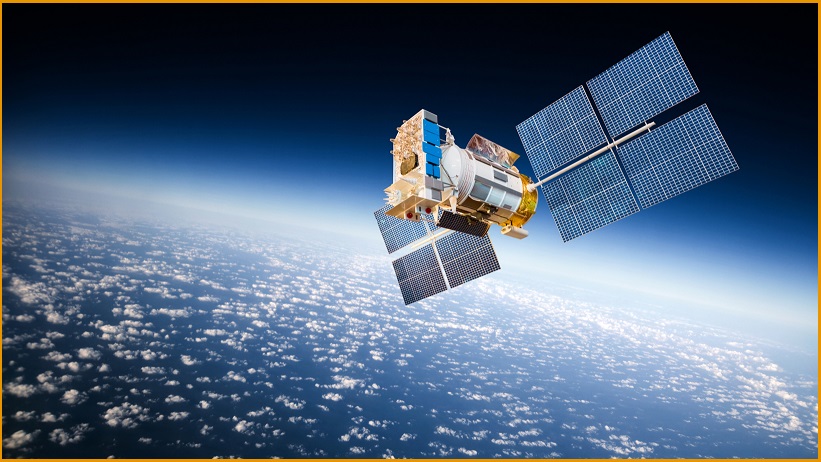It’s been a decade since Malcolm Turnbull savaged Labor for buying “Rolls-Royce” satellites for rural users, but as the Morrison government commits $480m to fix regional broadband, those satellites will play a crucial part – if they’re not made obsolete by Elon Musk first.
The newly-announced investment – $750m in total, with NBN contributing the other $270m – will expand the coverage of NBN’s fixed-wireless services by 50 per cent, shifting 120,000 additional households from NBN’s Sky Muster satellite services to faster terrestrial wireless.
By using fixed 5G connectivity for wireless broadband, Paul Fletcher, Minister for Communications, Urban Infrastructure, Cities and the Arts said as the investment was announced, all fixed-wireless premises will have access to 100Mbps broadband – and 85 per cent of customers will get speeds as fast as 250Mbps.
“This means more people can be served by NBN fixed wireless,” he explained. “It means higher speed services on the NBN fixed wireless network; and it means higher amounts of data can be used by households and business customers.”
NBN’s fixed-wireless services currently guarantee just 6Mbps during network busy hours – the evening period when large numbers of families sit down to stream content – and the upgrade is expected to increase this to 50Mbps.
Faster speeds will be a welcome change for the 50,000 regional businesses currently relying on frustratingly slow fixed-wireless services – but the project is also focused on reducing strain on the overburdened Sky Muster services.
Nearly 418,000 premises are currently located within the satellite coverage area, according to the latest NBN Co rollout progress data, with just over 110,000 actual paying customers.
By shifting many customers to fixed wireless and limiting the number of potential satellite users, the project is expected to improve the appeal of Sky Muster by boosting speeds and providing larger monthly download caps.
Satellite users will get access to unmetered broadband services for 16 hours of the day, according to NBN Co, compared with just six hours daily – with monthly allowances increasing to 55GB and, eventually, 90GB once the upgrade is complete.
The changes are critical to accommodate what Gavin Williams, NBN Co chief development officer for regional and remote, called “ongoing and growing demand” in regional and remote areas of Australia.
Faster speeds will, he said, make it easier to work remotely, access digital services and entertainment, and connect with loved ones – while for businesses, the new services will “enhance and expand participation in the global digital economy and benefit from innovative technology such as the Internet of Things and smart farming.”
Too little, too late?
Yet there is more to the government-backed expansion of fixed wireless than simple altruism.
With just one in four potential Sky Muster customers actually using the service, NBN Co has been exposed to competitive threats – and as those threats rapidly materialise, there may be very few potential Sky Muster customers by the time the new project finishes around the end of 2024.
As the only way for many rural and regional residents to get online without relying on archaic copper phone lines, Sky Muster services particularly struggled during COVID-19 lockdowns and the surge in remote work.
This left many frustrated regional customers open to alternatives such as StarLink, the global Elon Musk-backed network that has been targeted by Russia for keeping Ukrainians and Russians online despite widespread media blackouts.
StarLink started selling services to Australians last year and the constellation’s 1,440 low earth orbit (LEO) satellites now provide faster speeds than Sky Muster to more than 250,000 customers worldwide.
Sky Muster’s geostationary orbit is over 60 times higher than StarLink’s – meaning round-trip signals have to travel 60 times farther – and this challenges services that weren’t designed for 4K video streams or widely-used cloud services that require high speeds and low latency to work smoothly.
“Competition is a very good thing,” Fletcher previously said in reference to expanding mobile broadband networks that “offer people choices in relation to mobile broadband” – but those comments could come back to bite him if potential NBN customers sign up elsewhere.
Sky Muster customers have struggled with slow speeds, low monthly usage limits, high latency, congestion, and other issues since the satellites were launched in late 2015 and 25/5Mbps broadband services debuted in 2016.
Then Shadow Communications Minister Turnbull lambasted Labor’s decision to buy the “Rolls-Royce” satellites – which were originally only meant to cover 3 per cent, or fewer than 300,000, of Australia’s most remote premises – but changed his tune in government as it became clear the satellites were the only way to connect many remote premises.










